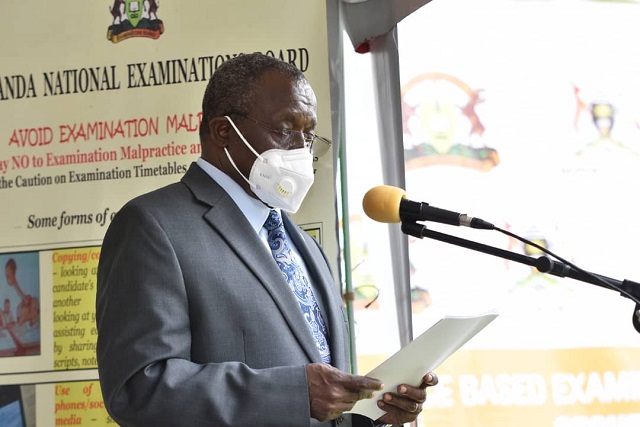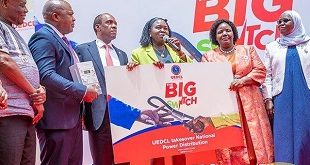
Kampala, Uganda | THE INDEPENDENT | The Uganda National Examination Board-UNEB has said secondary schools which are not recognized as examination centres by the board will not be able to submit learners continuous assessment results in the new secondary curriculum.
Dan Odongo, the UNEB Executive Director revealed this development to Uganda Radio Network-URN on Wednesday.
The revised lower secondary curriculum, among other things, introduced formative assessment which contributes 20 per cent to the learner’s final results at the end of the learning cycle in Senior Four. According to the guidelines, scores obtained from the said assessment must be submitted regularly to the examination body.
Previously, the Ministry of Education and Sports had proposed that learners assessments be compiled with the help of the Education Information Management System. Under this system, a learner was to be given an identification number which could be used to track their performance even when they have changed schools before completion of the level of education.
Odongo noted that due to data integrity issues, the examination body has preferred using an in-house portal to manage learners continuous assessment results. He however notes that the portal which is already in existence, will only be open to schools which are recognized as examination centres. He adds that the law provides that only students attached to a UNEB examination centre are allowed to sit a national examination.
The executive director’s remark means unrecognized schools will not be able to transmit assessment scores of their learners yet learners without these marks cannot be allowed to sit the final examination.
In the 2021 examination cycle, UNEB has 3,935 registered examination centres- this includes annexes and centres outside schools such as community halls and public libraries. However, inspection reports issued by the ministry of education a few years ago indicated that private secondary schools had UNEB centres.
For a school to obtain a UNEB centre, it must among other things have at least 12 full-time qualified registered teachers, have permanent structures and sufficient furniture and a hall that can accommodate a minimum of 50 candidates at the recommended spacing of candidates desks of at least 1.2 metres apart.
The school is also required to have two functional science laboratories each with the ability to accommodate at least 40 candidates under examination conditions and the ability to pay a non-refundable validation fee of 500,000 shillings.
With many schools cropping up more so in urban centres, the majority are unable to meet the qualification. However, Odongo advises that schools without center numbers can either privately register and coordinate assessments of their learners under another school as they have done in the past when registering candidates for national examinations, or they can work nonstop to meet the minimum requirements of obtaining a center number.
Although these school-based scores were meant to be submitted right from senior one, this did not happen since the curriculum was launched before most of the enabling mechanisms were in place.
Even after getting a two-year window when learners were out of school because of the COVID-19 lockdown, nothing much was done to ensure that the needed systems were in place. But the UNEB alongside the national curriculum development centre have confirmed that the recording of these scores will start next year.
Under the new curriculum, teachers are required to give tests to learners at the end of every topic or month to determine whether they have grasped what they are taught in class. This way, the chances of them remembering what they have learnt are high instead of waiting to cram for end-of-term examinations. The new arrangement also seeks to end the over-dependency on final examination results as the determinant of education excellence.
Christopher Muganga, the deputy director in charge of research and consultancy at NCDC, says they decided that continuous assessment contributes 20 percent in the infancy years of implementation to initiate the spirit and as years pass by, its contribution to the final result will be increased to 50 percent.
However, officials at UNEB are still puzzled on two issues; integrity and standard of classroom assessments. Odongo says that given the fact that the system is still new at O Level, there is still a lot to do.
“Many people are worried about the integrity issues, but we are also concerned about the standard of the assessments that will be given to learners in different schools; in national examinations there is uniformity, we know the standard of the examinations and all learners sit for the same assessment, this will not be the case,” he adds.
Odongo says that the board is currently preparing materials that will guide teachers on how to come up with standard and acceptable assessments. He further adds that UNEB is also working around setting up quality assurance measures that will uphold the integrity of the evaluations done in schools.
UNEB has been allocated over 5 billion shillings in the coming financial year to finance materials that will be sent to school, train teachers and also ensure that they have a robust server capacity to sustain transmission of student’s scores.
*****
URN
 The Independent Uganda: You get the Truth we Pay the Price
The Independent Uganda: You get the Truth we Pay the Price



